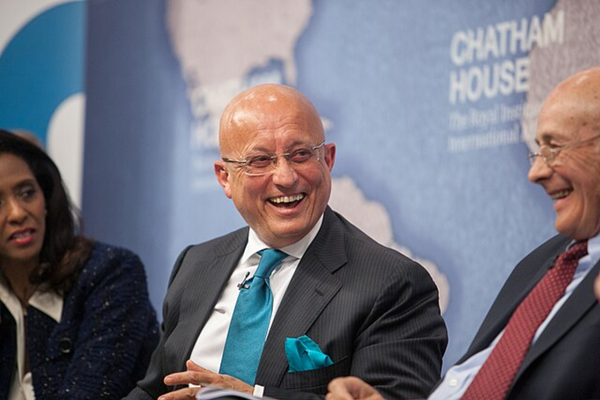
The list of living billionaires is growing, but whether you are Elon Musk, Jeff Bezos, Mark Zuckerberg, Bill Gates or Warren Buffett, when you hold on to a majority of the world’s wealth and don’t make any charitable donations, it becomes a bad look. Fortunately, many of the super-rich do make a habit of giving back.
Find Out: If Bezos’ Wealth Was Evenly Distributed Across the US, How Much Would We Get?
Up Next: 7 Ways To Tell If You're Rich or Middle Class -- It's More Than Your Paycheck
According to a survey conducted by the Bank of America Private Bank, 91% of wealthy individuals had made a charitable contribution in the past year. The survey included over 1,000 respondents over the age of 21 with a minimum of $3 million in assets to review the philanthropic trends of high-net-worth individuals.
While you may feel like this topic doesn’t impact you unless you’re wealthy, it turns out that how rich people donate can directly affect your local community.
Quick Take: How Wealthy People Donate
The survey placed the respondents into two demographics based on age: younger donors (ages 21-43) and older donors (over 44). We will review how they donate and their reasons for giving back. Here are a few key takeaways:
- Direct giving: 90% of older donors vs. 49% of younger donors
- Volunteering: 41% of older donors vs. 43% of younger donors
- Fundraising: 14% of older donors vs. 29% of younger donors
- Mentorship: 6% of older donors vs 25% of older donors
- Sitting on the board: 10% of older donors vs. 14% of younger donors
The survey also noted that 10% of all respondents use donor-advised funds, with 95% believing that they support long-term giving and 91% doing so because they simplify the giving process.
Here are some of the notable results as to why wealthy people believe they should donate their money, and the four ways it impacts people who have less, according to Bank of America’s research and expert opinion.
Trending Now: If Wealth Was Evenly Distributed Across America, How Much Money Would Every Person Have?
The Wealthy Consider What’s Missing
“Charitable giving requires the wealthy to consider the needs and positions of those who don’t have what they do,” noted Melanie Musson, a finance expert with InsuranceProviders.com. “When the recipients receive charitable gifts, they can offer programs, goods, and services that benefit the poor and the middle class.”
Charitable giving is the most common way the wealthy give what they have to benefit those with less. To give back, the rich may have to consider what’s missing in a particular community or segment of the population. This will help lower-class individuals facing financial hardships or stress related to crucial causes in their communities.
Charitable Giving Can Strengthen Relationships
“If the wealthy get personally involved in organizations, they can meet people of all socioeconomic backgrounds,” noted Musson. “Studies have shown that friendships between people from different classes help those of lower wealth become more successful over their lifetime.”
When wealthy people get involved with philanthropic efforts related to religious causes, social needs, animal welfare, military charities, homelessness, human rights groups, climate change, the advancement of women and girls and cultural groups, they connect with people they may not have met otherwise. Through volunteering, fundraising and mentorships, the wealthy can directly work with individuals who require assistance.
Mike Bahun, the founder and CEO of Fundraising University, added, “Outside of raising funding for kids, we need to be aware of the connection it provides. We need to make sure that the human side of that is there as well.”
Donations Let More People Participate in the Community
“It gives everybody, every community, an opportunity to participate,” shared Bahun. “This is the ultimate leveling that we want.”
The survey pointed out that wealthy people measure their philanthropic success in the positive outcomes they contribute towards, with 64% of older donors and 51% of younger donors considering long-term impact a critical metric. If a rich person sponsors a local community centre or helps with a food bank, more people in the community can feel included.
Bahun elaborated, “We want to make sure that, from a leadership standpoint, we’re leveling that playing field in the sense that we’re getting coaches and people that care about those kids and that the emotional part is there to help and support.”
Through mentorship programs, rich people can help more families get involved in local sports or causes that they’re passionate about.
Donations Help Families With Activities
“If we get to a point where sports are so expensive and funding is reduced, a pay-to-play model becomes established,” warned Bahun. “That model lends itself to less participation in sports and activities, and that means less direction for kids and their development.
The survey found that 42% of young donors want to associate their names with their philanthropic projects, and 27% of them gauge their success by public recognition. If wealthy people choose to donate to local projects and communities, they can help low-income families who may be struggling financially or with finding interests for their children. With more activities and resources available to families, the wealthy can help positively impact the overall community.
Final Take To GO: Donating to Charity in America
There are many reasons why high-net-worth individuals should and do give back to their communities and beyond. Here are a few they listed from the survey:
- Many donors prioritize making a lasting impact, with 63% of younger donors and 69% of older donors considering this one of the main factors in their giving.
- 56% of older donors feel a sense of obligation to donate, compared to only 25% of younger ones.
- Responding to critical issues is a motivator for 35% of older and 23% of younger donors.
- When it came to faith traditions, 31% of older donors and 23% of younger donors cited this as a reason for their philanthropic efforts.
More From GOBankingRates
- 9 Costco Items Retirees Need To Buy Ahead of Fall
- Mark Cuban Reveals His Formula for Side Hustle Success
- The New Retirement Problem Boomers Are Facing
- Here's the Minimum Salary Required To Be Considered Upper Class in 2025
This article originally appeared on GOBankingRates.com: 4 Reasons the Richest People in the World Give Back







